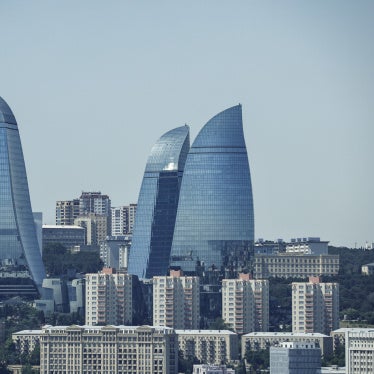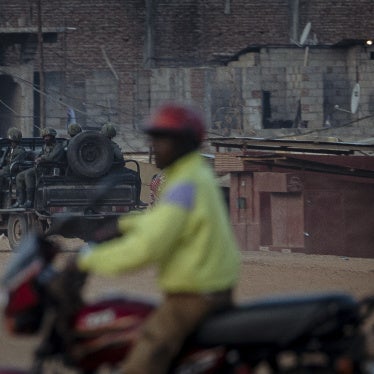Human rights need to be high on President Sarkozy’s agenda for his lightning-trip through the South Caucasus. Stakes are high in this strategically key but chronically unstable region. France has important economic interests there. Like the rest of Europe, France looks to Azerbaijan’s hydrocarbon energy wealth and the regional pipeline networks for its energy security. The recent discovery of huge new gas reserves in Azerbaijan’s Absheron gas fields, where Total is a 40 percent partner, makes Sarkozy’s trip very timely.
France wants to be an important political actor in the region as well. Sarkozy negotiated an end to the 2008 war between Russia and Georgia over the breakaway region of South Ossetia. It was an important achievement for Sarkozy and is likely to feature in his presidential campaign’s talking points. Paris is also the leading EU voice at the Minsk Group, negotiating a resolution to the region’s longest lasting conflict, between Azerbaijan and Armenia, in Nagorno-Karabakh.
There have been setbacks too. While Russian troops left uncontested Georgian territory long ago, they have not pulled back from South Ossetia or Abkhazia, Georgia’s other breakaway region, as the agreement had set out. Negotiations on basic principles of conflict resolution in Nagorno-Karabakh failed yet again this summer.
If Sarkozy really wants to make a difference in this region he should put considerable personal authority behind raising human rights issues directly with the presidents of each of the three countries he is visiting. That authority is urgently needed in Azerbaijan, where the government recently imprisoned a human rights activist and two social media activists on bogus charges, and also put six political activists behind bars for participating in peaceful political protests.
The government is giving the capital, Baku, a much needed facelift but is evicting, expropriating, and demolishing the homes of residents completely unlawfully and without adequate compensation. Sarkozy should press President Ilham Aliyev to release the political prisoners and stop unlawful evictions – and to act long before the country’s human rights situation goes on display for the Eurovision song contest in Baku next May.
The Armenian government has taken a few steps recently to clean up its rights record, three years after the 2008 election-related violence and political crackdown. It has released political prisoners, but it needs to do much more. It needs to ensure that the 2012 elections are worthy of public trust, promote – instead of hindering – broadcast media pluralism, and make sure that new civil penalties for libel, which went into effect this year after libel was decriminalized, are not misused to cripple Armenia’s independent media.
Georgia prides itself on its commitment to democracy and the rule of law, which makes it all the more important to raise human rights problems directly with President Mikheil Saakashvili. Tbilisi invested enormously to reform deeply corrupt police, but has failed to fully investigate excessive use of police force in recent years.
In a backward step, new laws adopted after a series of political demonstrations make it possible to detain people for up to three months without entitling them to the full array of rights they would get as criminal defendants. Such laws encourage mistreatment. It would be nice if Sarkozy told Saakashvili that these laws are problematic. Sarkozy should make clear that accountability, not impunity, for unlawful police behavior is the way to increase public trust in law enforcement and that everyone deserves equal treatment under the law. This is equally important in both stable and unstable times.
Sarkozy needs to make clear to leaders and the public alike in the South Caucasus that good governance and human rights are just as important to France as oil and gas. He should convey what France has learned from the Arab Spring—that enhancing rights, not entrenching authoritarian rule, is the key to long term stability.







